Candle care guide: expert tips for longer-lasting candles
I spoke to experts to find out their tips and tricks for maintaining your candles. They'll have cleaner burns and longer-lasting, stronger scents.
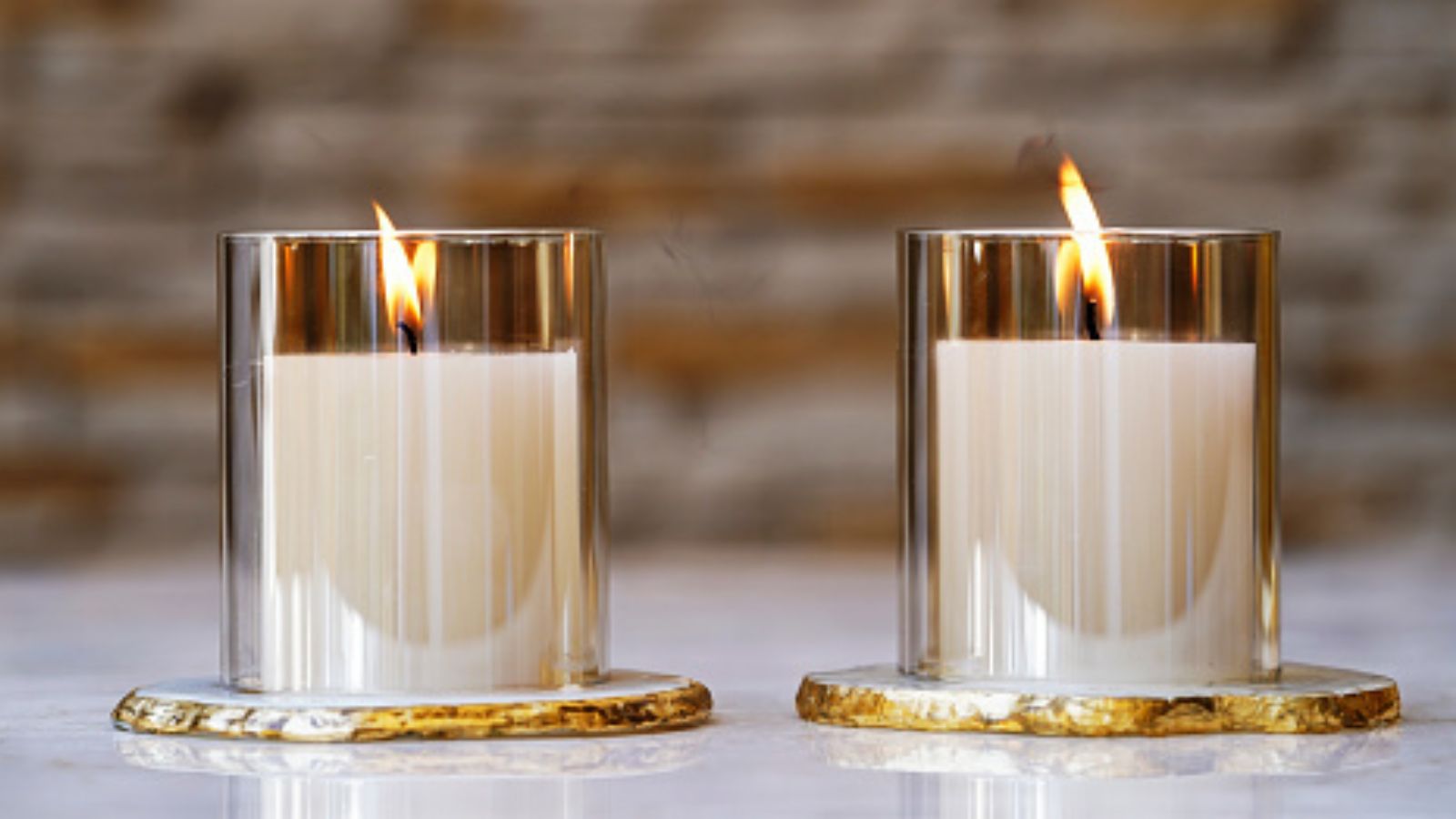

I vividly remember when I first started spending money on luxury candles. After saving up for months, my first candle felt too precious to burn, so I had it on my mantle for almost a year. It was beautiful, but a year in direct sunlight didn't do the candle any good. It lost its fragrance and the wax turned sticky.
Although candles are simple, most people make mistakes like this which prevent them from enjoying each scent to its maximum capacity. Once you've invested - and the best candles are no small investment - you might find that your candle produces black smoke, tunnels, or just stops smelling strongly. The most likely cause of the problem is a simple misstep, and those habits are easy to fix.
It all starts with quality. A high price doesn't guarantee high quality. There are specific waxes and wicks that you need to know that can stop all these problems before they start.
I know all of this first-hand. Before I started in consumer journalism, I qualified as a master perfumer, so I have lots of expertise on the best way to care for candles. I also spoke with candle makers and fellow master perfumers to find out the best way to keep your candle in top condition.
Wax Tips
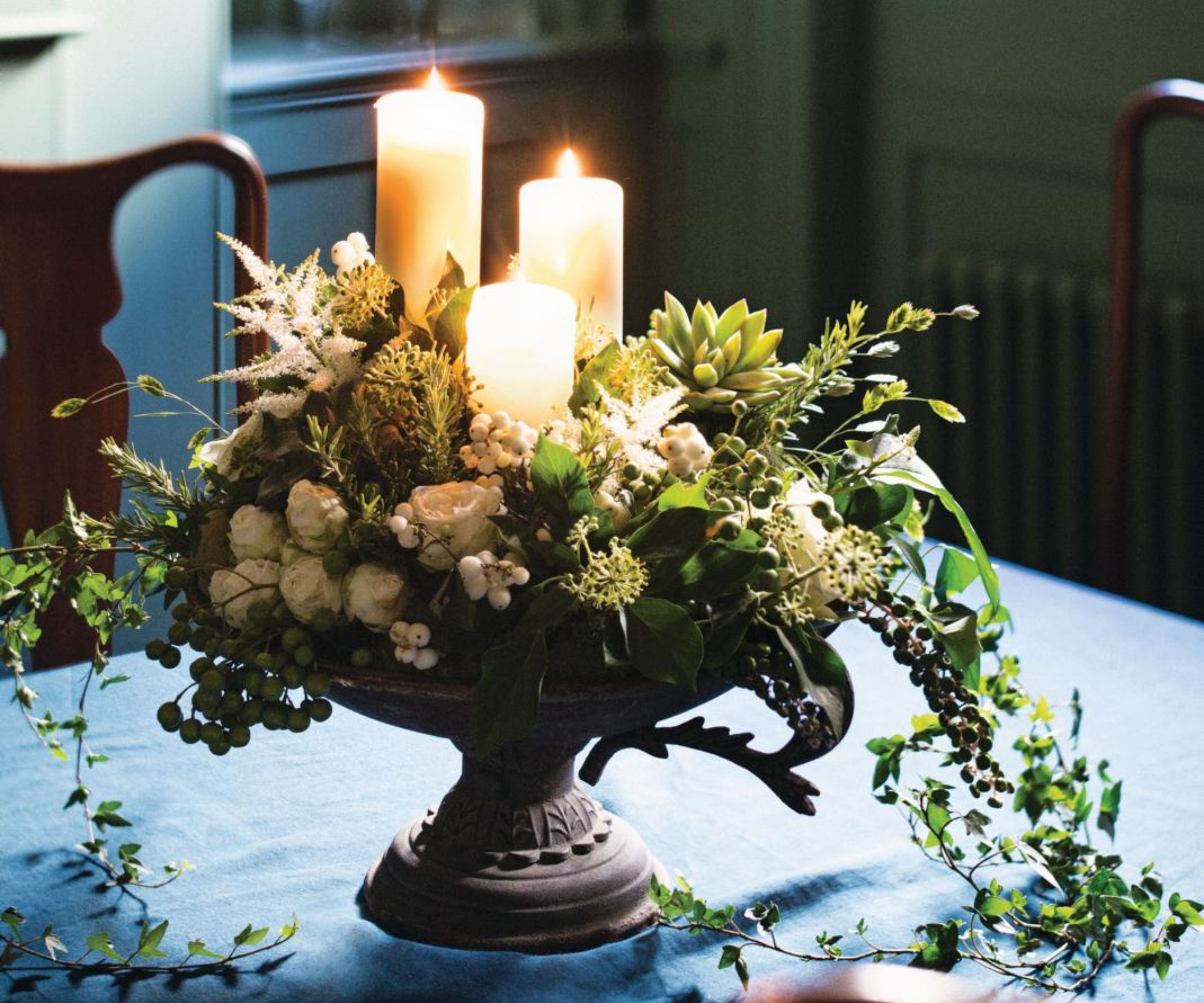
The wax in your candle seems basic, but it's a foundational part of any good candle. The wax is infused with essential oils, so that when it melts, your candle's aromas evaporate into the air. But that means it's important to check the composition before you buy a candle, because this is where most people make their first mistake.
Quality is paramount. A cheap wax like paraffin won't have a clean burn and is likely to leave soot marks on the glass of the candle, or worse, on your walls. If the type of wax isn't listed in the store, run your finger over the solid wax. If it has an oily film, it's probably paraffin, so you may want to opt for something else.
Instead, try soy wax, vegetable wax, or coconut wax. These premium waxes take longer to burn and have a cleaner flame. They also tend to be better for any sensitivities. They make a more potent fragrance, and the scent throw (how far the scent reaches into a room) is better, too.
The best material is the oldest wax of all: beeswax. It burns slowly and holds a lot of fragrance. However, if you're buying for a vegetarian or vegan, bear in mind that they may not appreciate any animal products.
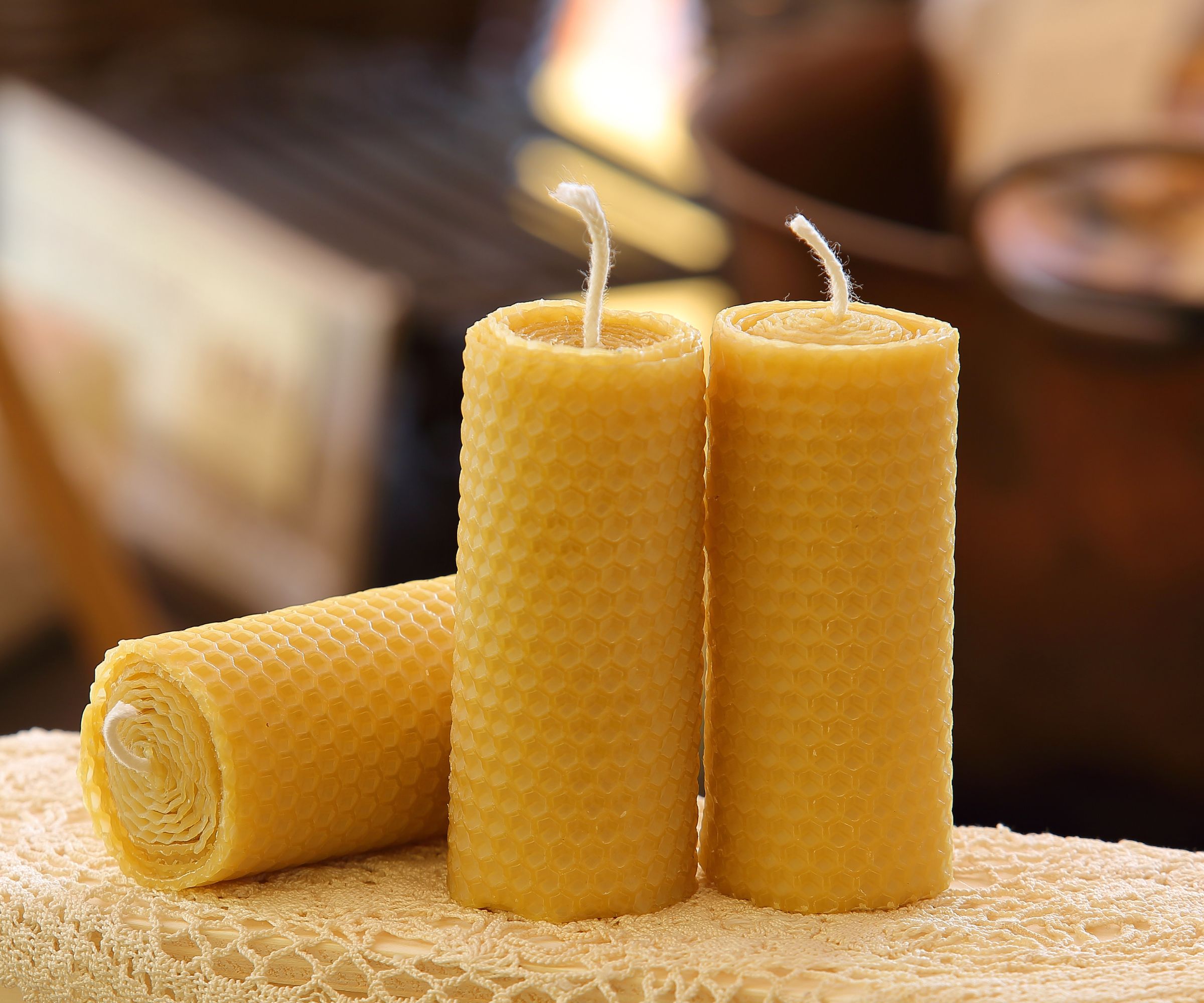
I spoke to Ruth Mastenbroek, an award-winning master perfumer, who told me that 'the biggest mistake I see people making is not burning the candle for long enough - especially on the first burn. Make sure it’s lit for long enough to create a pool of molten wax to the edge of the vessel, otherwise you will get a tunnelling effect'.
Tunnelling, as the word suggests, is when your wick burns deep inside the candle, leaving hard wax to build up at the edges. The wick will become harder and messier to light, and you'll waste a lot of wax that won't ever burn.

Ruth is an incredible perfumer. She's created fragrances for world-renowned brands like Jo Malone and is one of the only independent female perfumers in the world. After studying Chemistry at Oxford University, she took undertook classical perfume training in Grasse.
Ruth's son, Nic Mastenbroek, is also a perfumer. He suggests that people make sure that they have finished burning an entire candle before they put a new one out. He says 'I feel guilty about the idea of wasting any of the fragrance and candle'. If you always use all the wax, the vessel will be easier to clean and re-purpose too, so there's no reason to cut a candle's life short.

Nic is part of the Mastenbroek dynasty and has been making candles for five years. He often looks at perfume and candles from a slightly different perspective to Ruth, so they make an excellent and well-informed team.
Unfortunately, lots of leading brands still use paraffin or paraffin blends. It's always worth finding candles that don't use these waxes.
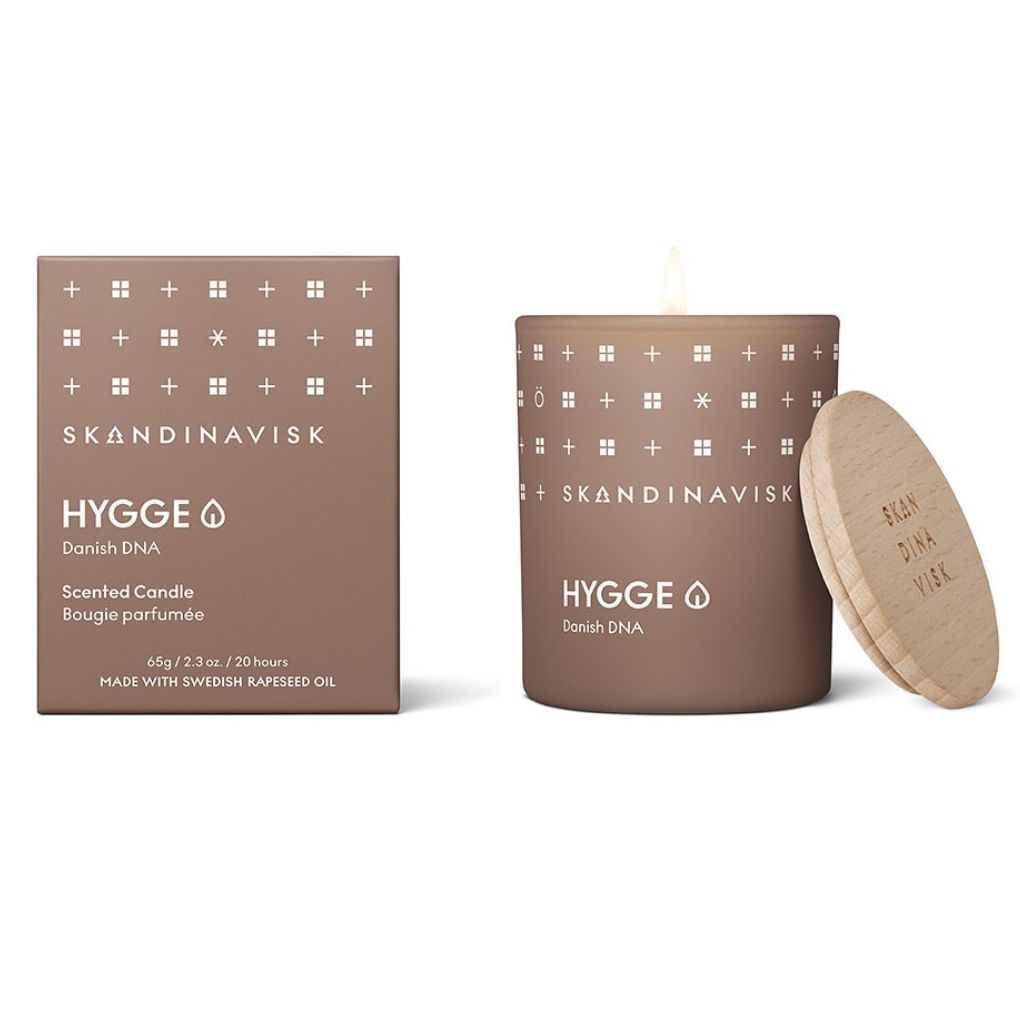
Scent family: Aromatic and rich
Scent notes: black tea, mint leaves, dried apples, and cinnamon
Size: 200g
Wax: Swedish rapeseed wax
Wick: cotton
Estimated Burn Time: 50 hours
I love this candle. It's called 'hygge' for a reason. Everything about it is cozy and warming. The minimalist look is created with recycled materials and FSC-certified wood and everything in it is vegan friendly. During testing, I found that the rapeseed wax is slow to burn and can hold a lot of fragrance too. When you're done, you can buy re-fills for the jar.
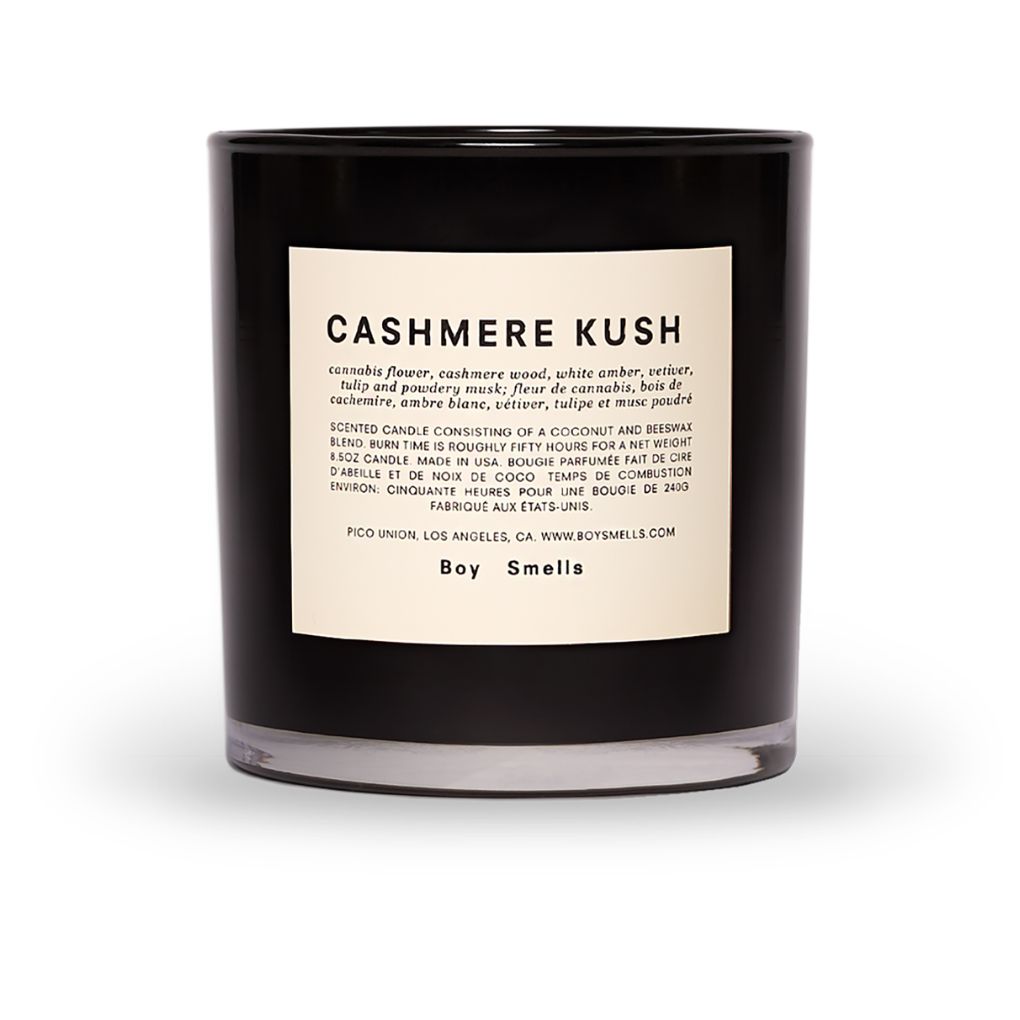
Scent family: herbal and woody
Scent notes: geranium, tulip, cashmere, rhubarb, vetiver, and amber
Size: 8.4 oz
Wax: coconut and beeswax
Wick: cotton
Estimated Burn Time: 50 hours
Lots of people love this candle, even those who aren't scent savants. The fresh and rich scent has an almost universal appeal. Even better, the wax is a blend of two of the most premium options. The simple style would seamlessly integrate into any house and, thankfully, the tinted glass vessel is relatively low-maintenance too.
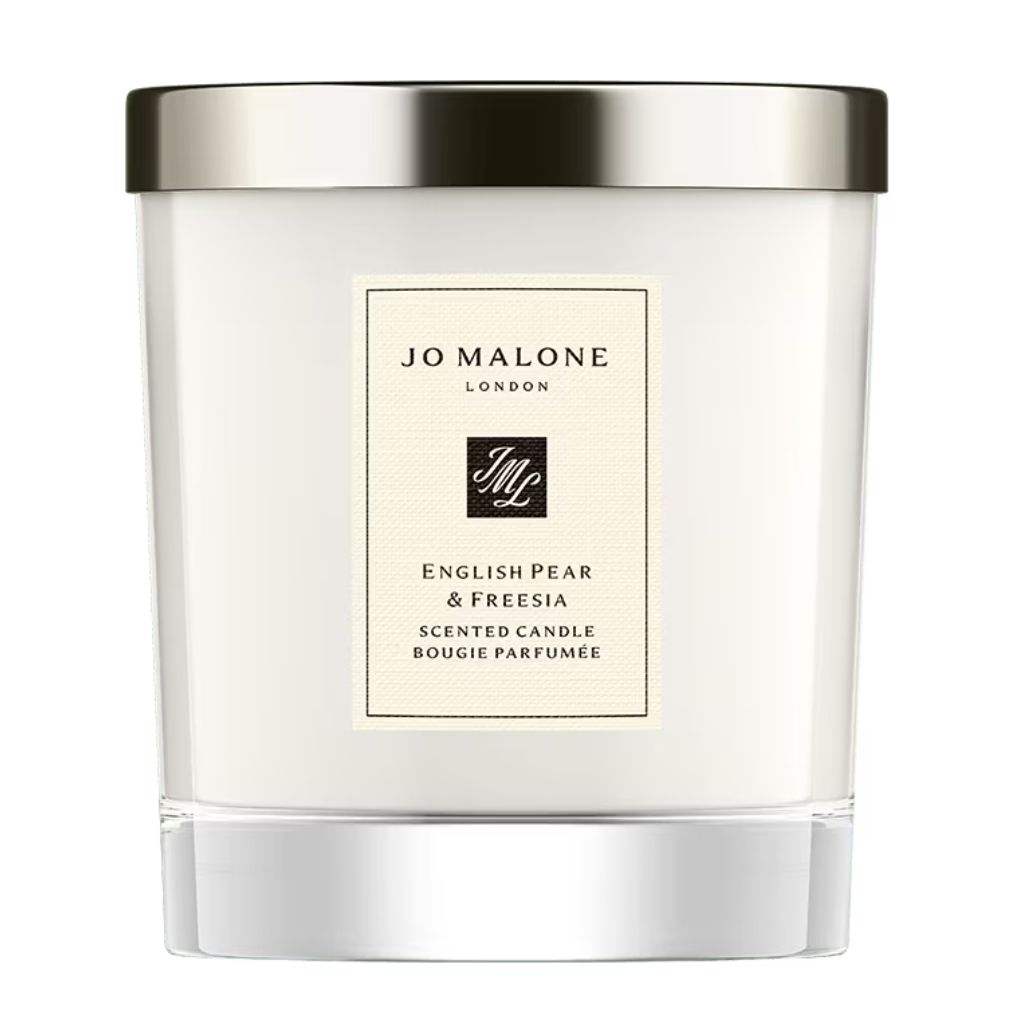
Scent families: fresh and fruity
Scent notes: pear, melon, freesia, rose, rhubarb, and amber
Size: 0.44lbs
Wax: beeswax, coconut, and soy wax
Wick: cotton
Estimated Burn Time: 45 hr
Ruth has been the nose behind some of Jo Malone's fragrances, so it's no surprise that these are incredible. Their English Pear and Freesia is one of my favorite candles, alongside Lime, Basil, and Mandarin (amazing) and Lavender and Moonflower (also amazing). You can smell that the wax composition is really luxurious too.
Wick Tips
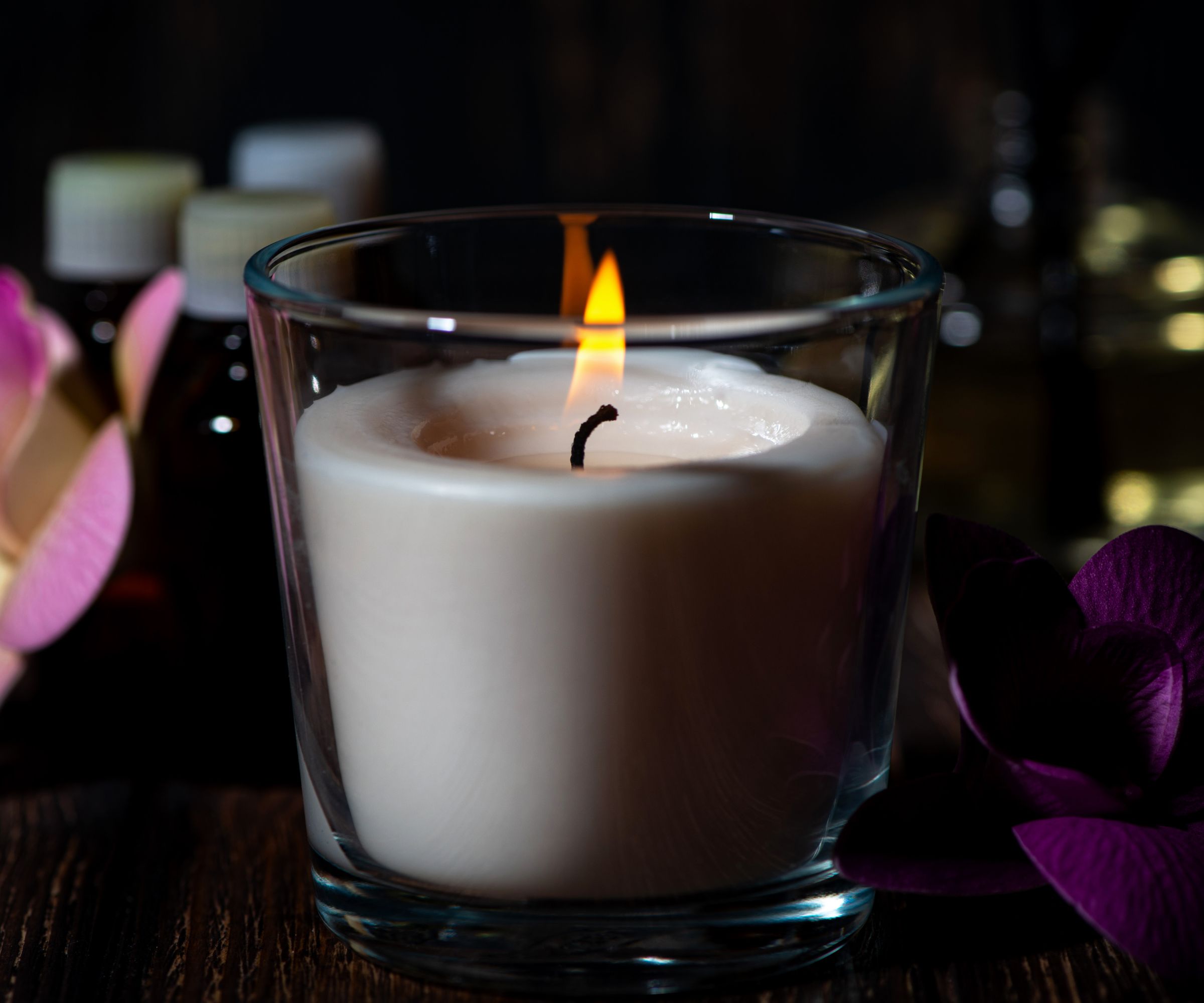
Although this candle looks beautiful, you can see that it is tunnelling. It needs to burn until the whole layer is molten before it's blown out
The wick is equally as important as the wax. Where budget allows, it should always be cotton. A pure cotton wick will have a really clean burn, so shouldn't leave soot on your walls or around the candle vessel. Occasionally, really cheap wicks will contain lead. This is an absolute no-go. You do not want this. Never burn a candle with a lead wick.
If you've bought a cotton wick candle there ways that you can keep it burning well. Viviana Hurtado, founder of her eponymous luxury candle brand, says 'if you only do one thing with your candles, trim the wick to about a quarter inch before every burn. It will extend the life of your candle by up to 25%'. She recommends investing in her company's stylish wick trimmer - you can also grab cheaper but less high-quality wick trimmers at Amazon.

Viviana is the founder of Viviana Luxury, a spa-inspired home fragrance and candle brand. She's involved in the whole process of candle creation, so she knows the features that you prioritize.
Some candles will have wicks made from other materials. WoodWick, as the name suggests, uses wooden wicks. These are as safe as cotton wicks to burn and have a slight crackling sound when they burn. If you have a candle like this, Jennifer Genson, R&D Director of Fragrance & Sensory Science at Newell Brands, recommends 'using tissue paper to break off the burned wood. There is a natural breaking point that leaves enough exposed wood wick to relight'. I would recommend doing this with cotton wicks, but it's an easy option if you have a wooden wick.

Jennifer works for Newell Brands as the R&D Director of Fragrance and Sensory Science. She's been there for seven years, overseeing products and scents, so has seen a range of candle fomulations.
Viviana also says that it's important to think about safety. She says to look out for mushrooming, which is when a wick isn't trimmed and bunches up on itself, drooping in a mushroom shape. 'The mushrooming on the top of a burned wick is carbonization, which can cause soot and a dancing flame. Dancing is great, but it belongs on the dancefloor and not your candle'. Without trimming, it can become a fire risk, but if you trim your candle wick, you'll be fine. After plenty of testing, it was easy to find candles with high-quality wicks.
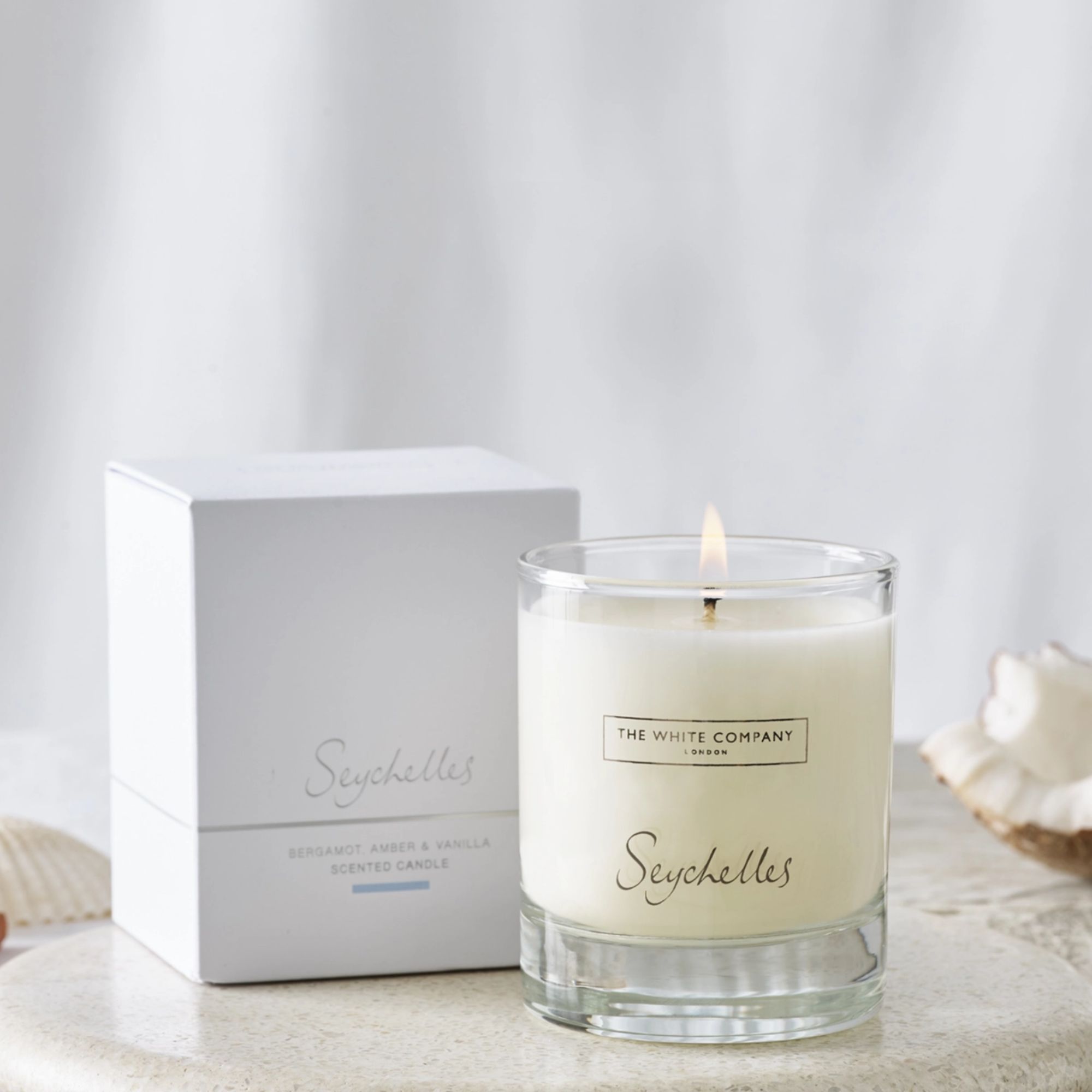
Scent families: ozonic, aquatic, fresh
Scent notes: bergamot, orange, coconut, jasmine, vanilla
Size: 4.9 oz
Wax: mineral
Wick: cotton
Estimated Burn Time: 33 hr
This is The White Company's most popular candle and I know why. It's fresh and aquatic, but has a slight sweetness that adds to the coziness of a room. The wick is pure cotton, too.
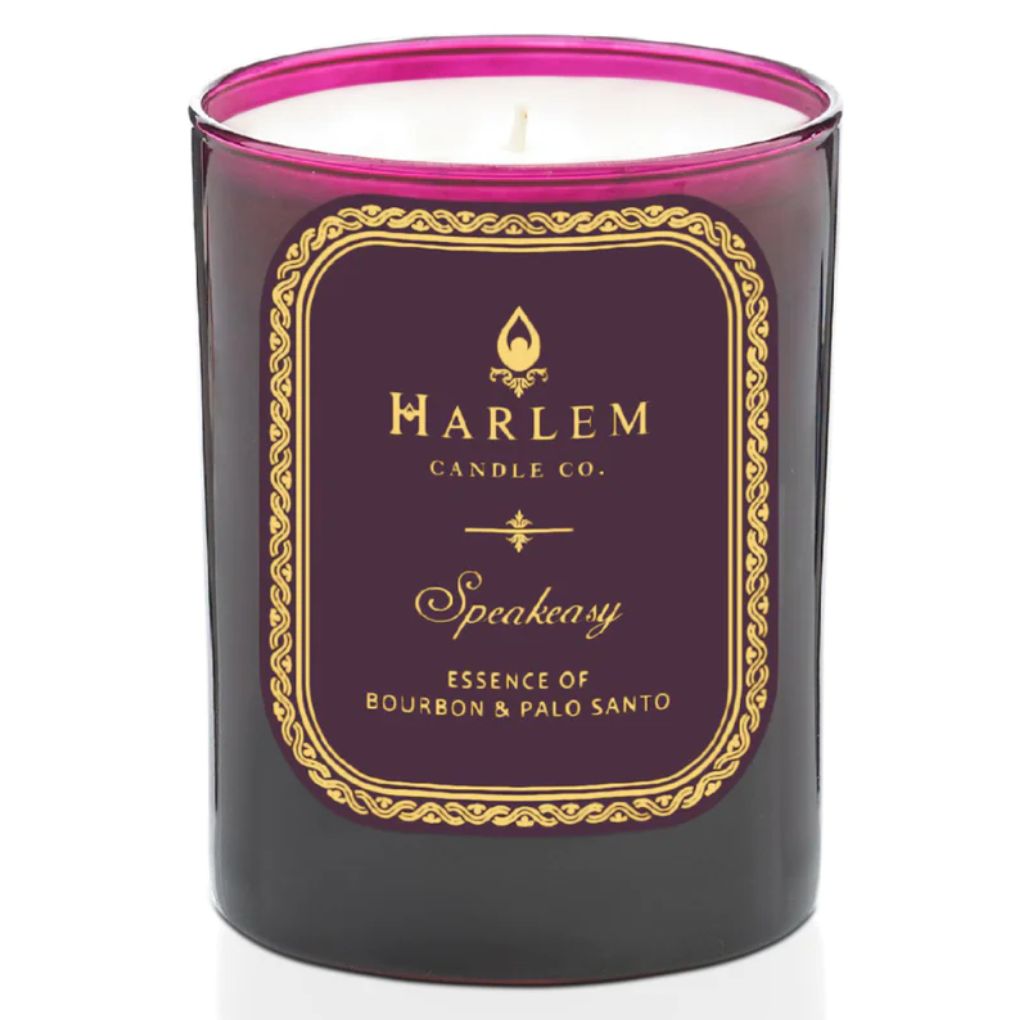
Scent families: aromatic, rich, spicy
Scent notes: cardamom, saffron, plum, tobacco, patchouli
Size: 11 oz
Wax: beeswax, coconut, and soy
Wick: cotton
Estimated Burn Time: 80 hr
Harlem Candle Co makes some incredible candles. The cotton wick burns top-quality wax and you'll notice the scent straight away. While strong and rich, it's never cloying or overpowering.
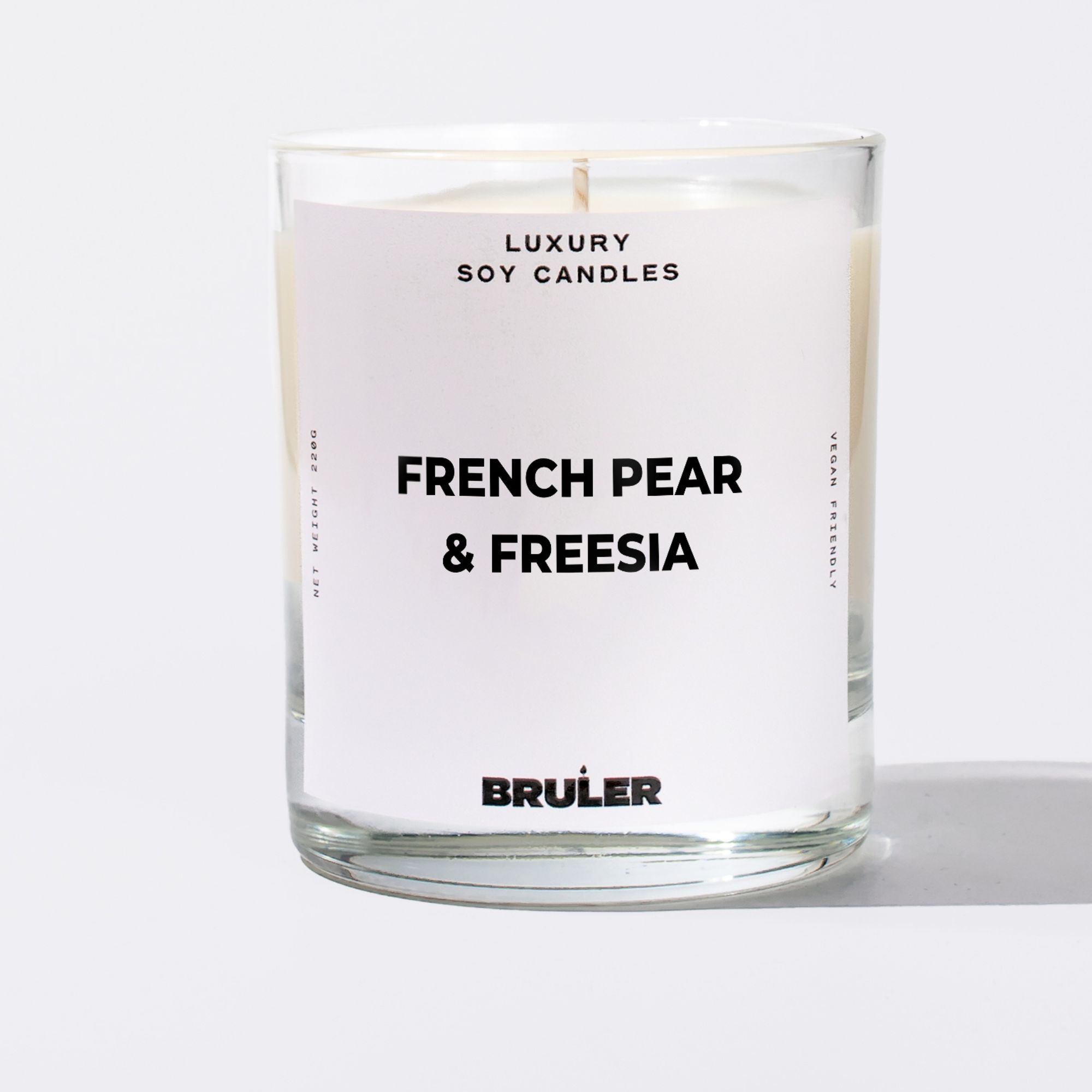
Scent families: floral, fruity, rich
Scent notes: French pear, freesia, rose, amber
Size: 30 cl
Wax: vegetable
Wick: cotton
Estimated Burn Time: 40 hr
The fresh, fruity fragrance of French pear and freesia is the equivalent of opening a window in your home. The fragrance is quite light, but underwritten by some lovely musky amber notes too.
Vessel Tips
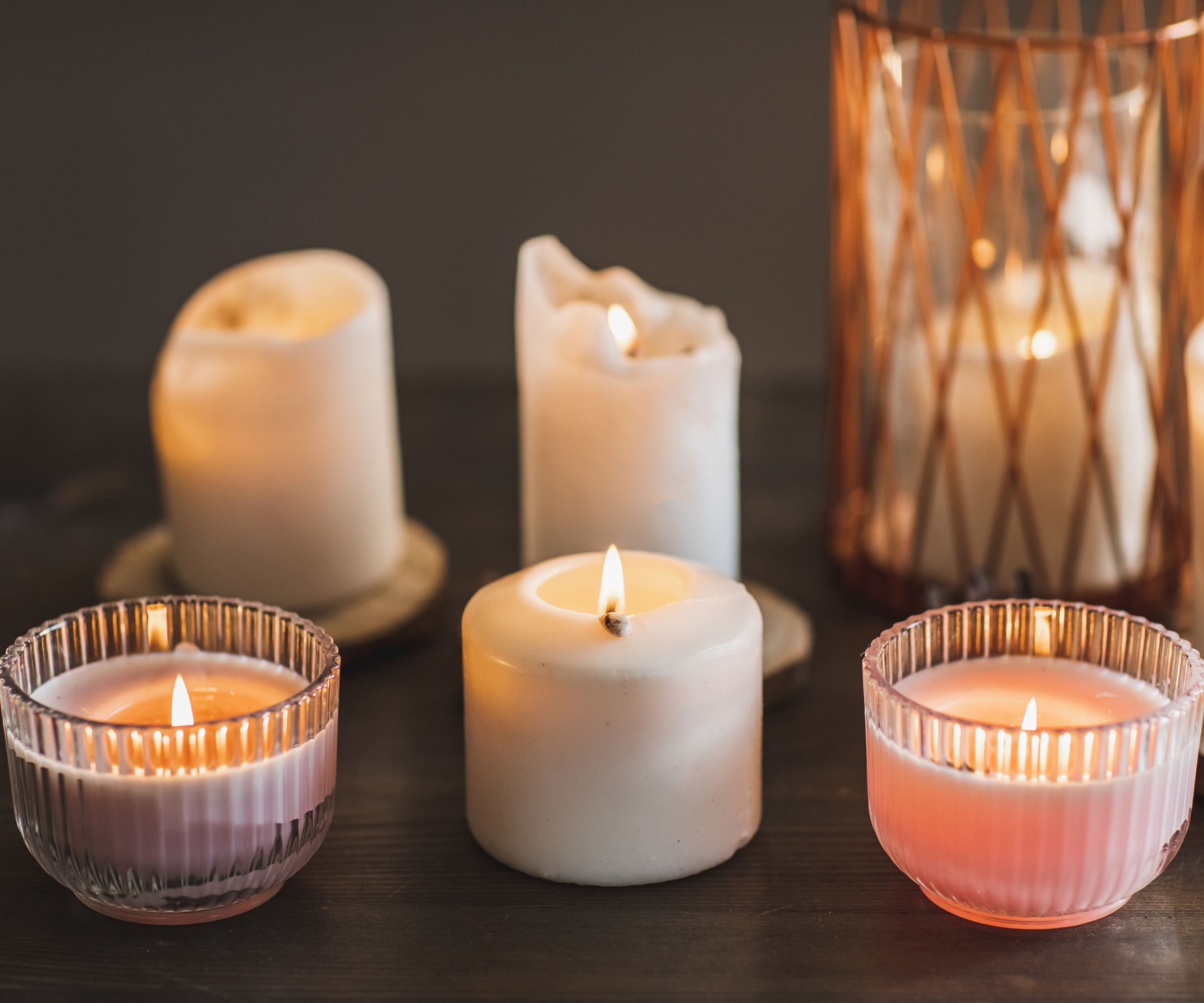
Your vessel won't need much upkeep, especially if you are burning your candle properly. However, candles often sit inside clear glass vessels, where the wax can end up leaving the sides looking oily, black, and grubby. When your candle is out and beginning to cool, take a dry microfiber cloth like this one from Walmart and wipe the edges. A cloth should be enough, but in the case of really stubborn stains, wait for the wax to set and use a cleaning spray. Soak a microfiber cloth with this solution and wipe the edges of your candle vessel. This should be enough to stop your vessel from looking dirty and polluting the candle wax.
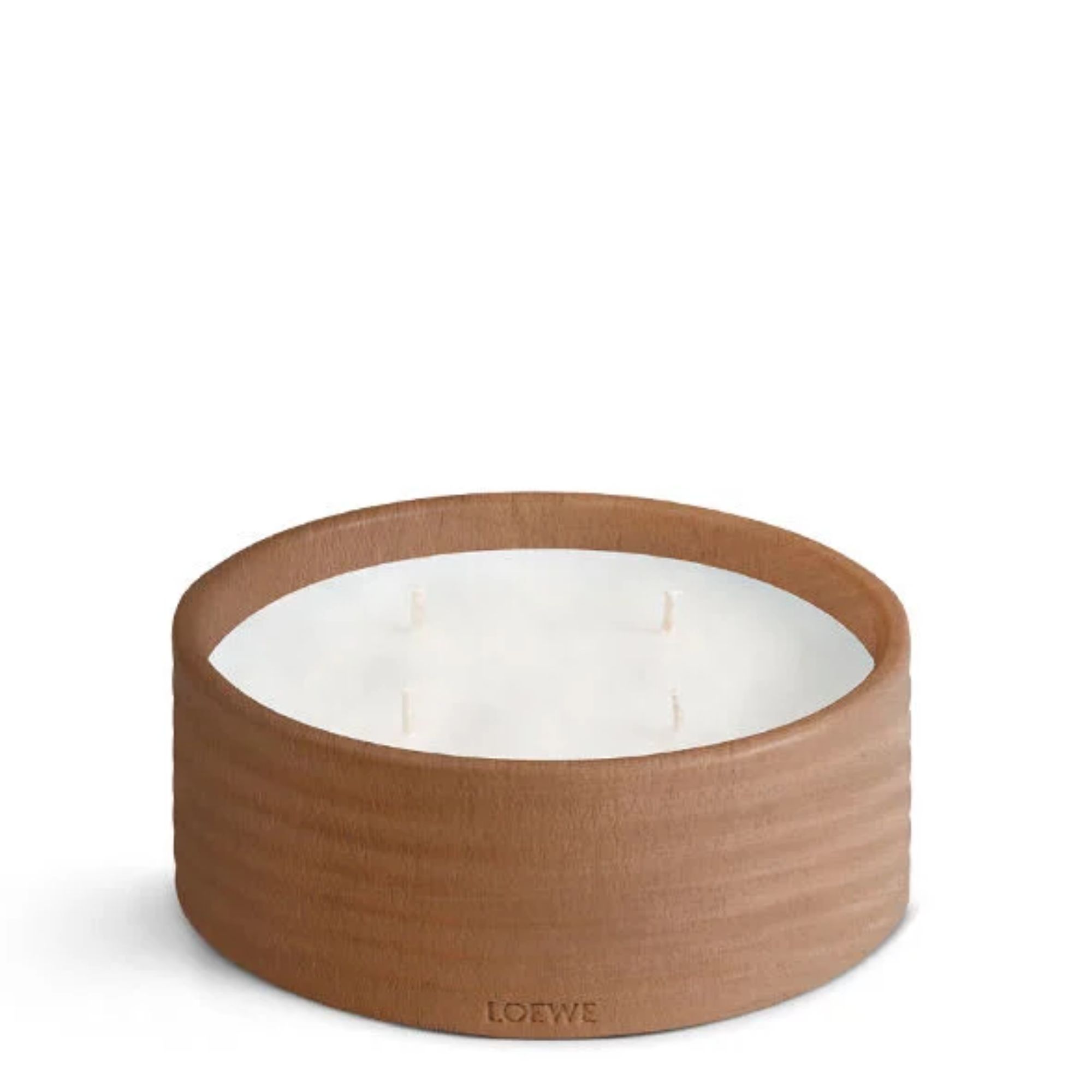
Scent families: herbal, fresh
Scent notes: thyme
Size: 750g
Wax: vegetable
Wick: cotton
Estimated Burn Time: 100+ hr
This is a really fresh fragrance. Loewe designed it to be burned outside, so if you have an urban courtyard or patio, this is perfect for smelling greener climes, even if you're in the center of the city. Once you've burned it, the terracotta pot makes an endlessly useful vessel.
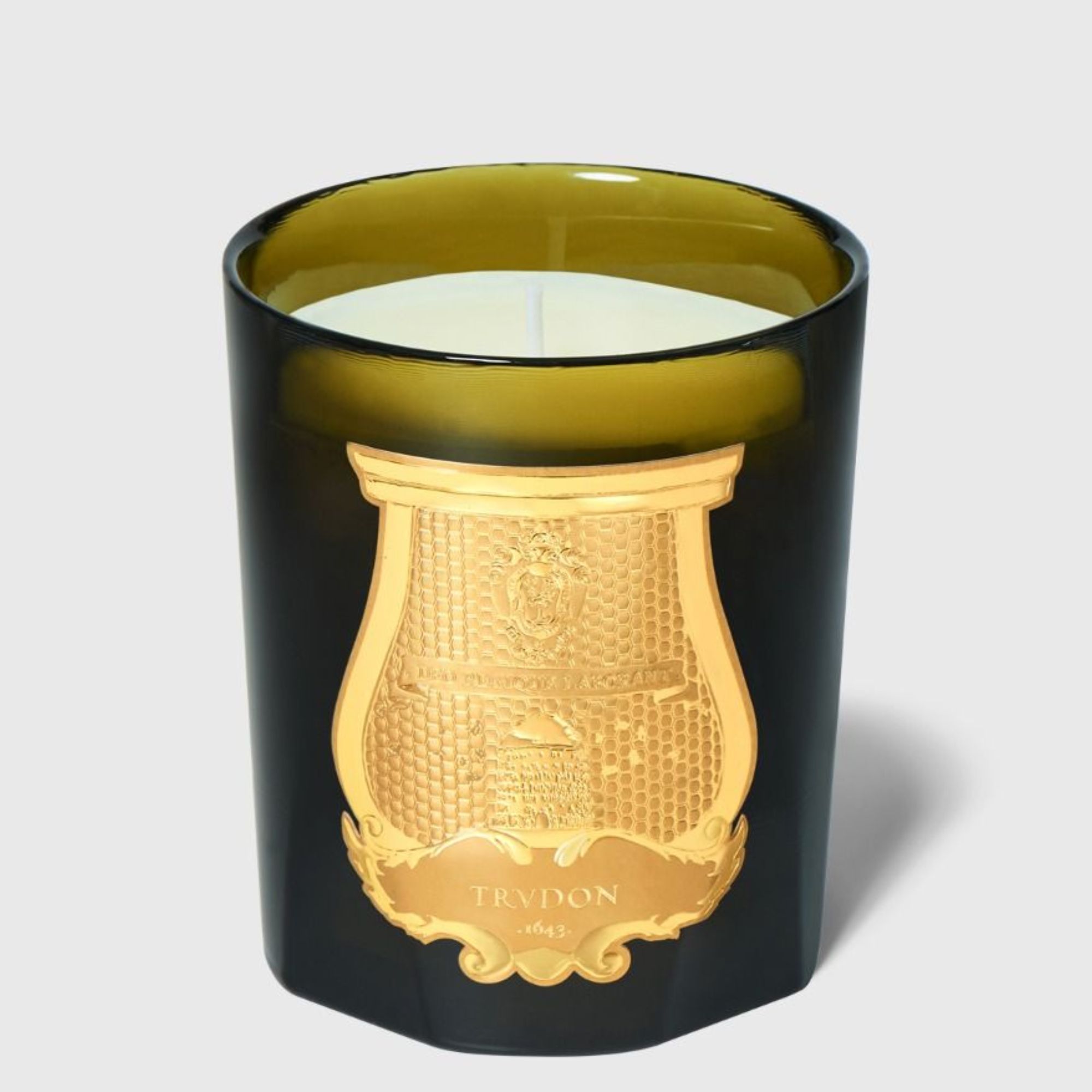
Scent families: woody, smoky
Scent notes: leather, tobacco
Size: 9.5 oz
Wax: vegetable
Wick: cotton
Estimated Burn Time: 60 hr
Steeped in nearly 400 years of French heritage and opulence, Trudon makes incredible candles. Ernesto is woody and aromatic, but the grapefruit top notes give this candle an invigorating zest. I've kept all my empty Trudon candle jars, because they're so beautiful.
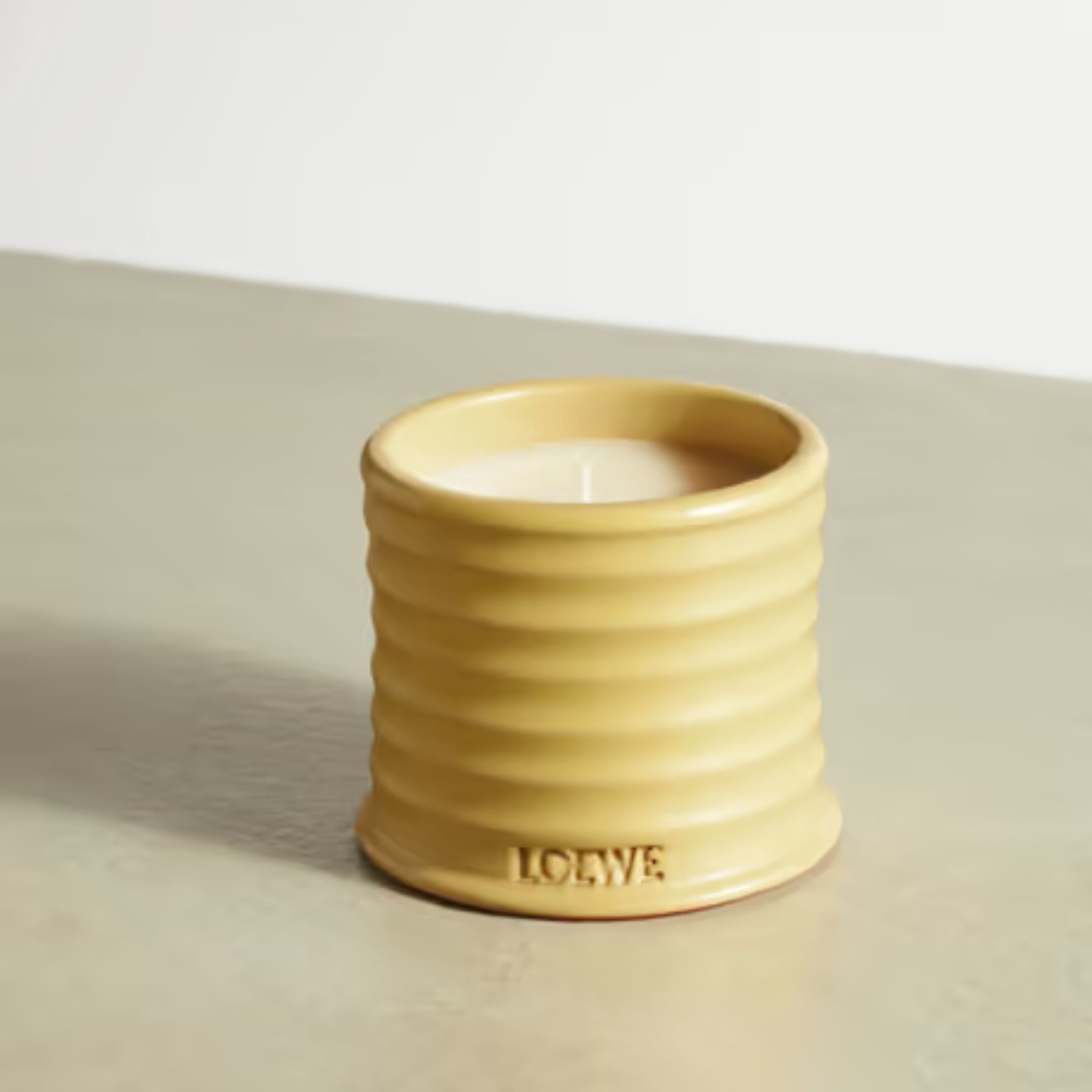
Scent families: white floral
Scent notes: honeysuckle
Size: 170g
Wax: vegetable
Wick: cotton
Estimated Burn Time: 30 hr
It's Loewe again, but these vessels are really beautiful. This is smaller than the outdoor candle, but the fragrance is really strong. You won't need to burn it often to have the sweet smell of honeysuckle in your home and when you do light the wick, you'll experience extraordinary scents.
Extra Insight
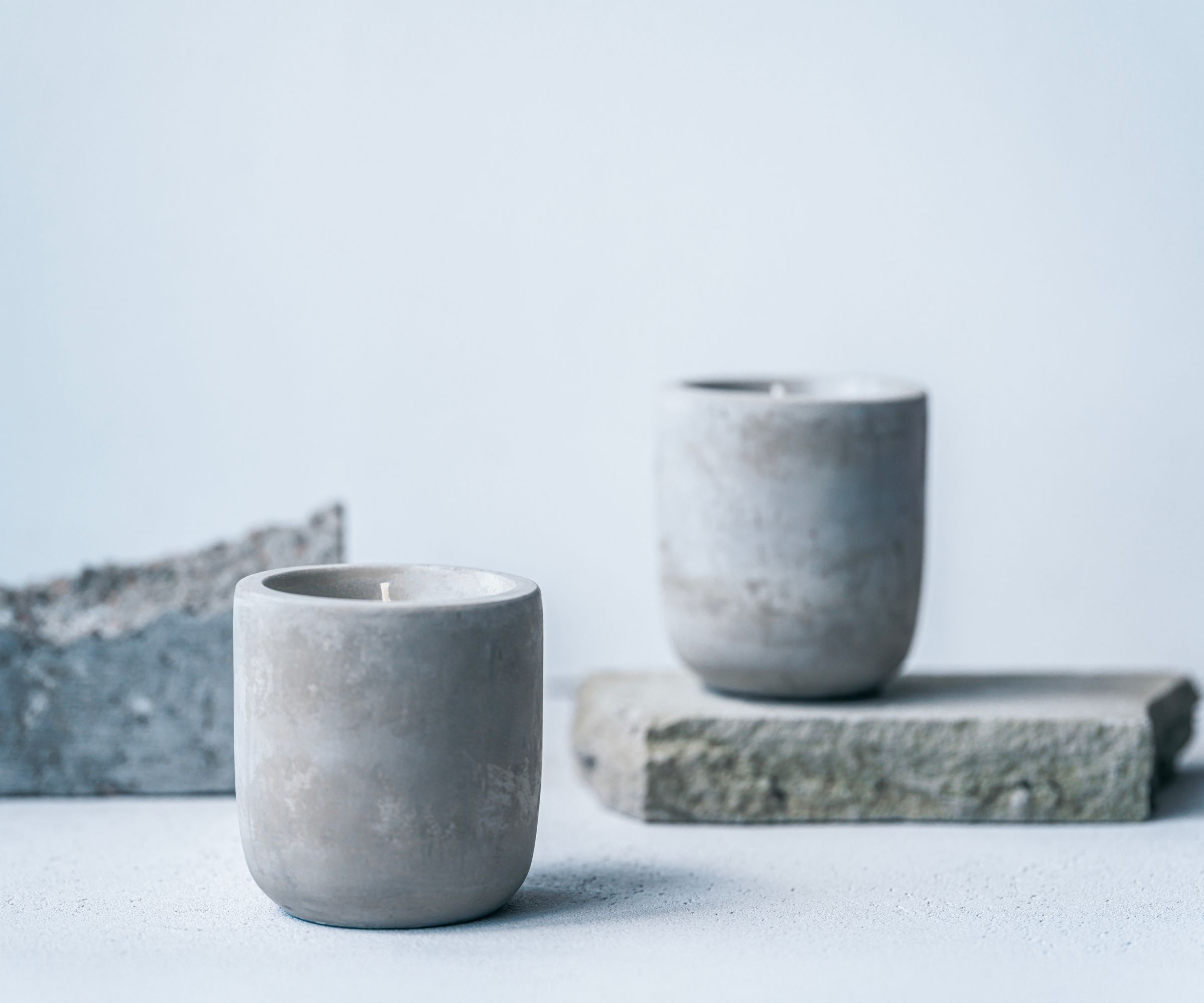
Jennifer Genson recommends keeping your candles safely on a stable, heat resistance surface for three to four hours at a time. Depending on your candle, you can burn it for different lengths of time. Once the top layer of your wax is melted, you won't get any more scent out of your candle, so it's only wasteful to continue burning.
I would recommend keeping your candle away from drafts too. You do not need, or want, a candle in the wind. This is a safety hazard and will affect the burn. It's best practice to store your candles in a cool, dry space, out of sunlight.
I always use a candle warmer like this one from QVC if my candles look like they need more attention. It's a really useful device that will help to diffuse the scent of your candle around the room without requiring an open flame. If you end up with pieces of wax from your near-empty candle, you can place them in the bowl and use up every last drop. You can also use the warmer to redistribute the wax if your candle is tunnelling. Make sure that you keep your candle level though, as warmers often have bowls which are hard to balance your candle in.
FAQs
Can I get away with buying a cheap candle?
Ruth Mastenbroek, qualified Master Perfumer warns against buying a cheap candle. She says 'in fragrance you often get what you pay for, and while it can be tempting to purchase very cheap home fragrances from large retailers or stores, these often don’t include much fragrance and don’t perform so well. We would suggest spending a little more, if you can, to ensure a better quality product that works. Look out for discounts from established and niche brands, where you may be able to pick up a bargain of a fragrance that would usually cost much more.'
What is mushrooming?
If you don't properly trim your candle wicks, they will drop and look a bit like mushrooms. The imperfect wick will have an uneven burn and is much more likely to create a black flame.
What is tunnelling?
If you don't burn a candle properly (so that the top layer is all molten), the wick will start to tunnel. As time continues, your wick will bury itself deep in the candle, wasting all the wax and scent that your candle has to offer.
Why is candle care important?
You might have never thought about looking after your candle, but if you don't maintain it well you'll be swindling yourself. The scent won't be as strong and you won't use it all. You're also likely to not burn your candle properly, resulting in blackening on the walls or on your candle vessel.
Do I need a wick trimmer?
A wick trimmer is useful and, once you have one, you won't know how you managed without one. However, I lost mine when I moved house and my nail clippers do a great job in their absence. I've got another set of wick trimmers on the way, but it's no trouble if you don't have them to hand, right now.
Why is my candle flickering?
Your candle shouldn't flicker. If it is, it's probably because of airflow. Make sure that your candle is away from draughts, vents, or ant strong air currents. Your room should be well ventilated though.
What do I do if my candle wick is too short?
If you can’t light your candle wick because it’s too short, try to take a little bit of the wax away from around the candle. You could scrape this away, or soften up the surrounding wax using a blow drier or candle lighter. Be careful doing this because you’ll have the flame at different angles. Remove the wax around the wick using a Q-tip or tweezers, or by pouring. Then light the wick and it should burn down like it used to. Let it burn for 30 minutes to establish a pool of melted wax around it.
Why is my candle's glass black?
If you have paraffin wax or a poorly trimmed wick, soot will accumulate on your candle vessel or wall. Make sure to maintain your candle and this shouldn't happen.
Final thoughts
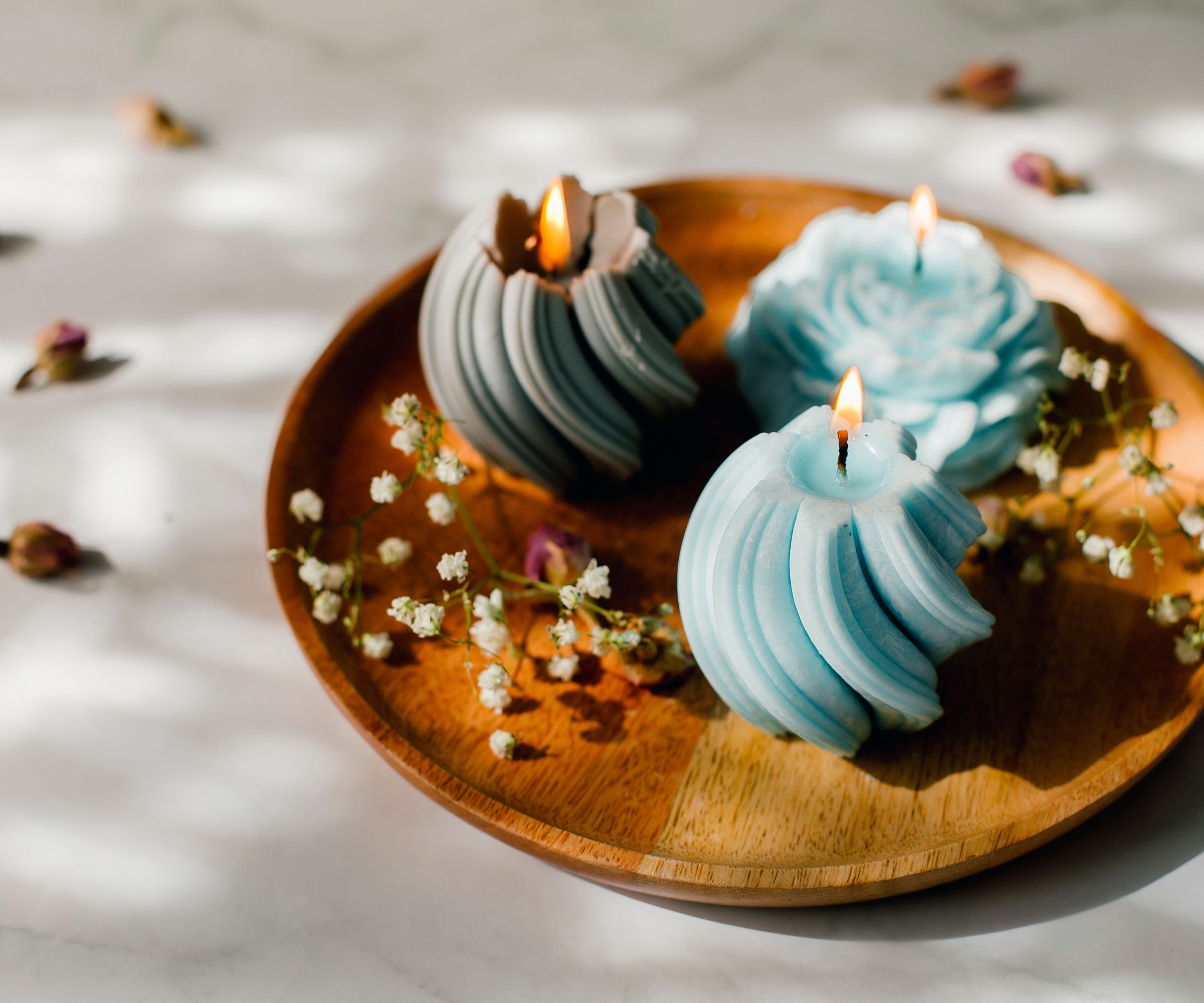
Candles aren't complex. If you maintain the wick and wax, you shouldn't have any problems. A well looked after candle will perfectly scent your room, whilst adding ambience too. You can use reed diffusers to achieve similar results, but there's nothing quite like a cozy room with flickering candles in.
Sign up to the Homes & Gardens newsletter
Design expertise in your inbox – from inspiring decorating ideas and beautiful celebrity homes to practical gardening advice and shopping round-ups.

Laura is our eCommerce editor. As a fully qualified barista, she's our expert in all things coffee and has tested over thirty of the best coffee makers on the market. She has also interviewed Q-Graders and world-leading experts in the coffee industry, so has an intimate knowledge of all things coffee. Before joining Homes & Gardens, she studied English at Oxford University. Whilst studying, she trained as a master perfumer and worked in the luxury fragrance industry for five years. Her collection of home fragrance is extensive and she's met and interviewed five of the world's finest perfumers (also known as 'noses'). As a result of this expansive fragrance knowledge, she always puts quality and style over quantity and fads. Laura looks for products which have been designed simply and with thoughtful finishes.
-
 Ina Garten's storage pantry is an insightful window into all of the best cookware used by the chef – and it's easy to recreate on your kitchen shelves from $48
Ina Garten's storage pantry is an insightful window into all of the best cookware used by the chef – and it's easy to recreate on your kitchen shelves from $48The beautiful dishware in The Barefoot Contessa's Hamptons pantry showcases the tools she uses most often to cook – this is exactly how you replicate it
By Sophie Edwards Published
-
 Extend the lifespan of your appliance with 5 simple but crucial washing machine maintenance tips
Extend the lifespan of your appliance with 5 simple but crucial washing machine maintenance tipsFrom cleaning the filters to keeping the door open, experts reveal the washer tips they swear by
By Andy van Terheyden Published